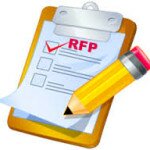Pre-qualify hard, close easy” – Bernie Cronin, President Sandler Sales Institute
There is a problem when companies with a traditional selling approach focus primarily on quantity rather than quality when it comes to building their pipelines. The challenge traditional selling companies face is they don’t know to ask tough qualifying questions up front, perhaps for lack of learning in a professional sales training environment. However, it would be more efficient if they were to disqualify a sizable opportunity and proactively repopulate the pipeline with more qualified ones. This is how a pre-qualifying company functions.
How does a company prequalify an opportunity? There are four basic ways to go about it:
- Determine the need. Find out if there is only curiosity or pain. Curiosity doesn’t buy, but pain does. Buyers buy because they have a problem and need a solution. Sellers are doctors, and doctors don’t treat until they’ve diagnosed the problem. Help them discover their problem. After all, you’re the expert.
- Ask if what you’re selling is in their budget. Are they just looking, or is this something that they have made room for? Can they buy now, or do they need financing? Find out up front, not at the end.
- Speak to those involved in the decision making process. Don’t waste your time speaking to someone who’s not the one making decisions.
- Agree that a decision will be made. Communicate to the buyer that it’s okay for them to say no, and that if they like what you have to offer, agree that a decision will be made one way or the other. Remove what I like to call “future fuzziness”, or “mutual mystification”.
What sets a pre-qualifying company apart from a traditional one is how they are spending their time. For example, a company sends 2 RFP’s, one to a traditional selling company “a” and another to a pre-qualifying company “b”. Company “a” laboriously  reads it, agrees it’s a good fit, and willingly spends hours drafting a proposal. But when company “b” receives the request, he or she asks for access to the committee involved in the decision making process, and if denied, company “b” will most likely not submit the bid. The hours spent on company “a” putting together a proposal could be allocated on finding more winnable opportunities. Company “a” thinks they are winning because they are busy, while company “b” is the one busy winning.
reads it, agrees it’s a good fit, and willingly spends hours drafting a proposal. But when company “b” receives the request, he or she asks for access to the committee involved in the decision making process, and if denied, company “b” will most likely not submit the bid. The hours spent on company “a” putting together a proposal could be allocated on finding more winnable opportunities. Company “a” thinks they are winning because they are busy, while company “b” is the one busy winning.
To sum it up, pre-qualifying is the solution to winning more opportunities. Neglecting to ask these questions up front leave companies busy begging, rather than winning. It takes guts, but who said sales was for the faint of heart? It’s a paradigm shift, but it makes perfect sense. Hopefully you found this helpful. Please leave comments or give feedback, I’d love to hear it!
Ryan

Leave a Reply Cancel reply
You must be to post a comment.